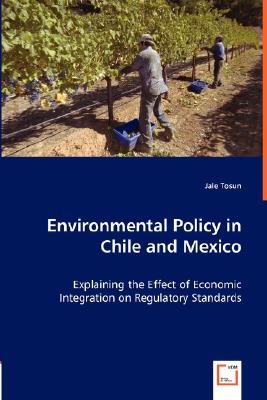
- We will send in 10–14 business days.
- Author: Jale Tosun
- Publisher: VDM Verlag Dr. Mueller E.K.
- Year: 2008
- Pages: 120
- ISBN-10: 383647557X
- ISBN-13: 9783836475570
- Format: 15.2 x 22.9 x 0.6 cm, softcover
- Language: English
- SAVE -10% with code: EXTRA
Reviews
Description
Has economic integration lowered the level of environmental standards in developing countries? Many observers think so. But in this study Jale Tosun argues that this need not necessarily be the case. As the case studies on Chile and Mexico reveal, trade interlinkage with developed countries can yield a positive impact on the level of environmental policy setting. At the implementation stage, however, developing countries try to evade enhanced regulatory burdens through reduced enforcement activities. Tosun explains this behaviour by developing a two-level interaction model, which integrates the concepts of regulatory competition, international cooperation, and conditionality. She shows that more stringent environmental protection standards in developing countries mainly result from conditionality pressure, whereas regulatory competition can still become effective during implementation. As a result, the progress of environmental policy in low-regulating countries must be regarded with some caution. The book combines a comprehensive theoretical model with original empirical data, turning it into a valuable resource for students of public policy analysis and practitioners alike.
EXTRA 10 % discount with code: EXTRA
The promotion ends in 10d.00:09:52
The discount code is valid when purchasing from 10 €. Discounts do not stack.
- Author: Jale Tosun
- Publisher: VDM Verlag Dr. Mueller E.K.
- Year: 2008
- Pages: 120
- ISBN-10: 383647557X
- ISBN-13: 9783836475570
- Format: 15.2 x 22.9 x 0.6 cm, softcover
- Language: English English
Has economic integration lowered the level of environmental standards in developing countries? Many observers think so. But in this study Jale Tosun argues that this need not necessarily be the case. As the case studies on Chile and Mexico reveal, trade interlinkage with developed countries can yield a positive impact on the level of environmental policy setting. At the implementation stage, however, developing countries try to evade enhanced regulatory burdens through reduced enforcement activities. Tosun explains this behaviour by developing a two-level interaction model, which integrates the concepts of regulatory competition, international cooperation, and conditionality. She shows that more stringent environmental protection standards in developing countries mainly result from conditionality pressure, whereas regulatory competition can still become effective during implementation. As a result, the progress of environmental policy in low-regulating countries must be regarded with some caution. The book combines a comprehensive theoretical model with original empirical data, turning it into a valuable resource for students of public policy analysis and practitioners alike.


Reviews